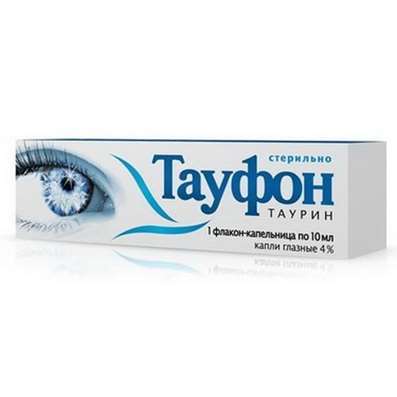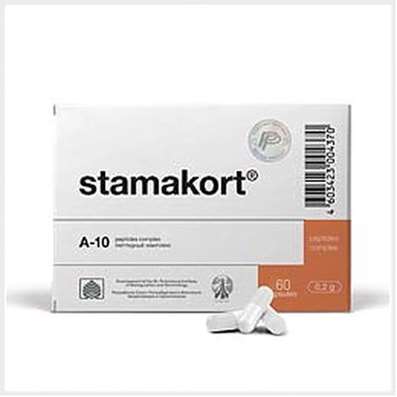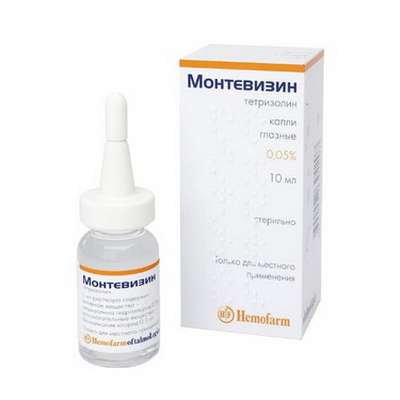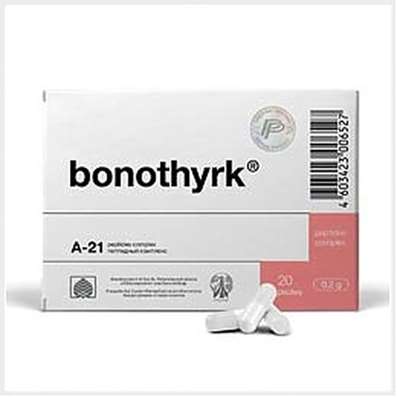Instruction for use: Rudotel
I want this, give me price
Active substance: Medazepam
ATX
N05BA03 Medazepam
Pharmacological group:
Anxiolytics
The nosological classification (ICD-10)
F10.3 Abstinence: Alcohol withdrawal syndrome; Abstinence syndrome; Abstinence syndrome with alcoholism; Abstinence; Alcohol abstinence; Alcohol withdrawal status; Alcohol abstinence syndrome; Postabstinctive disorder; Postabstinent condition; Hangover syndrome; Abstinence syndrome; Alcohol withdrawal syndrome; Abstinence condition
F41 Other anxiety disorders: Anxiety status; Anxiety; Chronic alarm; Sense of anxiety; Anxious-hypochondria; Stopping an alarm; Nonpsychotic anxiety disorders
F48 Other neurotic disorders: Neurosis; Neurological diseases; Neurotic disorders; Neurotic condition; Psychoneurosis; Anxious-Neurotic Conditions; Chronic neurotic disorders; Emotional reactive disorders
G43 Migraine: Pain with migraine; Migraine; Hemiplegic migraine; Migraine-like headache; A migraine attack; Serial headache; Hemikraniya
G47.0 Sleep disturbance and sleep disturbances [insomnia]: Insomnia; Insomnia, especially the difficulty of falling asleep; Desynchronosis; Prolonged sleep disorder; Difficulty falling asleep; Difficulty falling asleep; ; Insomnia; Short-term and transient sleep disorders; Short-term and chronic sleep disorders; Short or shallow sleep; Disturbance of falling asleep; Sleep disturbance, especially in the phase of falling asleep; Sleep disturbances; Sleep Disorders; Neurotic sleep disorder
N95.1 Menopausal and climacteric conditions in women: Atrophy of the mucous membrane of the lower sections of the genito-urinary tract caused by estrogen deficiency; Vaginal dryness; Vegetative disorders in women; Hypoestrogenic conditions; Estrogen deficiency in women in menopause; Dystrophic change in the mucous membrane in menopause; Natural menopause; Intact uterus; Climax; Men's Climax; Menopause in women; Menopause Depression; Menopause dysfunction; Climacteric neurosis; Menopause; The climacteric period complicated by psycho-vegetative symptoms; Menopausal Symptom Complex; Climacteric vegetative disorder; Climacteric psychosomatic disorder; Menopause in women; Menopausal vascular disorder; Menopausal vasomotor symptoms; Insufficiency of estrogens; Feeling of heat; Pathological menopause; Perimenopause; Menopause Period; Post-menopausal period; The postmenopausal period; Postmenopausal period; Premature menopause; Premenopause; Premenopausal period; Tides; Hot flushes; Blood flashes to the face in meno- and post-menopause; Hot flushes / sensations in menopause; Heartbeat during menopause; Early menopause in women; Disorders in menopause; Menopause syndrome; Vascular complications of climacteric period; Physiological menopause; Estrogen-deficient conditions; Menopause premature
R45.1 Anxiety and agitation: Agitation; Anxiety; Explosive excitability; Internal stimulation; Excitability; Excitation; Excitation acute; Psychomotor agitation; Hyperexcitability; Motor excitement; Cessation of psychomotor agitation; Nervous excitement; Restlessness; Night trouble; Acute stage of schizophrenia with excitation; Acute mental agitation; Paroxysm of excitation; Overexcitation; Increased excitability; Increased nervous excitability; Increased emotional and cardiac excitability; Increased agitation; Mental arousal; Psychomotor agitation; Psychomotor agitation in psychoses; Psychomotor agitation of an epileptic nature; Psychomotor paroxysm; Psychomotor fit; Symptoms of Excitation; Symptoms of psychomotor agitation; The state of agitation; A state of anxiety; Excitation status; A state of heightened concern; The state of psychomotor agitation; Conditions of anxiety; Excitation conditions; The state of excitement in somatic diseases; Excitation level; Feelings of anxiety; Emotional arousal
R45.4 Irritability and anger: Neurosis with increased irritability; Outbreaks of anger; Anger; Resentment; Increased irritability; Increased irritability of the nervous system; Irritability; Irritability with neuroses; Irritability in psychopathic disorders; Symptoms of irritability; Dysphoria
R45.7 Unspecified condition of emotional shock and stress: Exposure to stress factors; Exposure to extreme situations; Neuropsychiatric stresses; Professional stress; Psychoemotional overload and stress; Psychoemotional stress; Stressful condition; Stress; Stress loading; Stressful condition; Stressful situations; Stress conditions; The stresses of everyday life; Chronic stress; Prolonged emotional stress; Psychological stress in air flights; Psychoemotional stress in stressful situations
Composition and release form
Tablets - 1 table.
medazepam 10 mg
auxiliary substances: lactose monohydrate; potato starch; gelatin; talc; magnesium stearate; sikovit yellow-orange 85 (E110)
in bottles of dark glass of 50 pcs .; in a pack of cardboard 1 bottle.
Description of dosage form
Round flat tablets with smooth surfaces, light orange, with a risk on one side and with bevelled undamaged edges.
Characteristic
Daytime tranquilizer from the benzodiazepine group.
Pharmachologic effect
Mode of action - anxiolytic.
To a lesser extent it has a hypnotic, anticonvulsant and muscle relaxant effect. Competitively stimulates GABA receptors.
Indications for the Rudotel
Neurotic disorders accompanied by fear, anxiety, anxiety, psychosomatic and psychovegetative disorders (including sleep disorders, migraine, functional cardiovascular and gastrointestinal disorders), climacteric syndrome.
Contraindications
Hypersensitivity, alcohol and drug dependence, severe myasthenia gravis, impaired breathing during sleep, severe liver and kidney dysfunction, pregnancy (I trimester), children's age (up to 10 years).
Application in pregnancy and lactation
Contraindicated in pregnancy (I trimester). Long-term use of the Rudotel during pregnancy can lead to the development of abstinence in the newborn. For the duration of treatment, breastfeeding should be discontinued.
Side effects
From the nervous system and sense organs: inhibition, drowsiness, fatigue, slowing down of reactivity, dizziness, headache, confusion, ataxia, anterograde amnesia, rarely depression, respiratory depression, articulation disorders, gait and movement uncertainty, visual disturbances, hallucinations , paradoxical reactions (agitation, fear, suicidal thoughts, sleep disturbances, attacks of increased aggressiveness, seizures of various muscle groups).
On the part of the digestive tract: rarely - dry mouth, nausea, vomiting, pain in the epigastric region, diarrhea, constipation, jaundice.
On the part of the respiratory system: rarely - laryngospasm, chest pain.
From the cardiovascular system and blood (hematopoiesis, hemostasis): a sharp decrease in blood pressure, bradycardia.
From the genitourinary system: rarely - urine retention, decreased sexual desire, violation of the menstrual cycle.
Allergic reactions: rarely - redness, exanthema, itching.
Interaction
Strengthens (mutually) the effect of antidepressants, hypnotics, neuroleptics, antihistamines, alcohol, anesthetics, analgesics. Oppressing the action of levodopa and biotransformation of phenytoin. Cimetidine, omeprazole, disulfiram strengthen or prolong the action. Theophylline eliminates the soothing effect of the Rudotel.
Phenobarbital and phenytoin stimulate metabolism.
Dosing and Administration
Inside, on an empty stomach, with plenty of liquid. Adults: daily dose - 1-3 tablets. (10-30 mg), divided into 2-3 doses per day or once in the evening (on an empty stomach 0.5 h before going to bed). The maximum daily dose, if necessary, can be increased to 40 mg on an outpatient basis and to 60 mg in a hospital setting.
In acute conditions of emotional stress, agitation or fear, the use of the Rudotel is limited to single doses or several days.
In chronic conditions of emotional stress, agitation or fear, the duration of use should not exceed 4 weeks.
Cancellation of the drug after prolonged use (more than 1 week) should be carried out by a gradual dose reduction.
Children over 10 years of age: the daily dose is 0.5-1.0 mg / kg, the maximum daily dose is 1.0 mg / kg.
Elderly patients: a daily dose of 10-20 mg.
Overdose
Symptoms: confusion, drowsiness, ataxia, dysarthria, a sharp decrease in blood pressure, muscle weakness, in severe cases - cyanosis, loss of consciousness, stopping breathing and heart.
Treatment: gastric lavage, application of flumazenil.
Precautionary measures
Caution should be exercised in appointing elderly and debilitated patients, patients with spinal and cerebellar ataxia, organic brain lesions, chronic obstructive respiratory failure, impaired liver and kidney function, and glaucoma. Should be avoided long uncontrolled admission (more than 4 weeks), tk. it is possible to develop addiction and drug dependence. During treatment should refrain from drinking alcohol. Do not use during work drivers of vehicles and people whose profession is associated with increased concentration of attention. To prevent the development of the "withdrawal" syndrome, a gradual discontinuation of treatment is necessary.
Storage conditions for Relanium
In the dark place at a temperature of no higher than 30 ° C.
Keep out of the reach of children.
Shelf life of Relanium
5 years.
Do not use after the expiry date printed on the package.

 Cart
Cart





